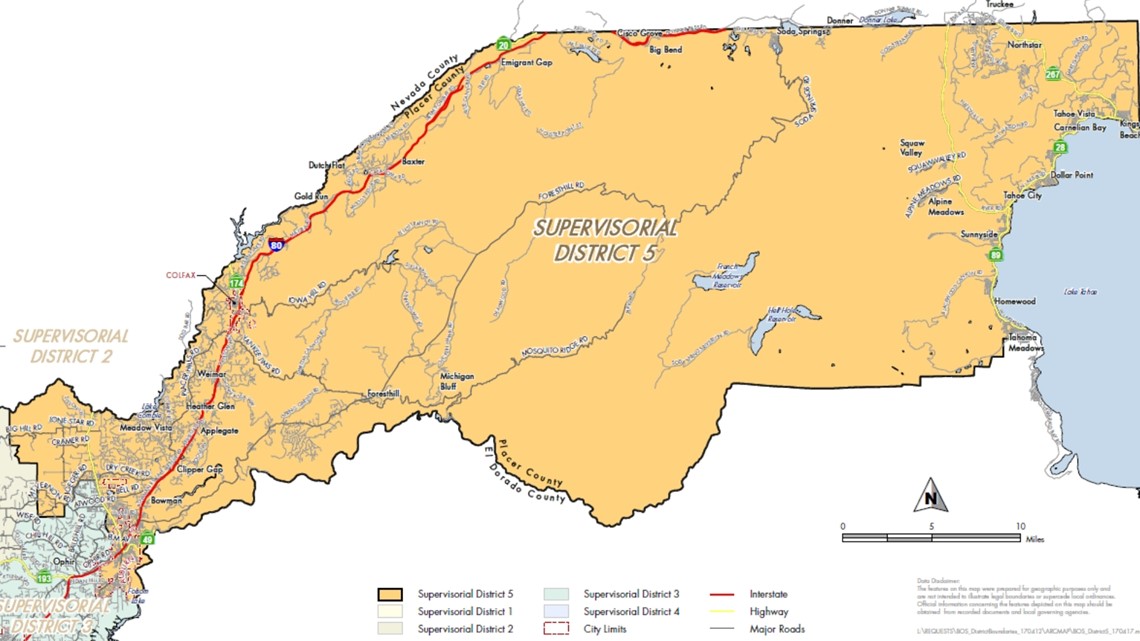ROSEVILLE, Calif. — Placer County is conducting an internet service survey to gauge residents' access to internet services to inform a larger Broadband Strategic Plan that will be presented at a Board of Supervisors meeting in December.
Based on results from last year's survey, 62% of 5,000 respondents were under the federal standard of 25 megabits per second (Mbps) for download speed. Dieter Wittenberg, the IT manager for Placer County, said the same results seem to be holding true for this year's survey so far.
"Twenty five mbps is really a necessity at a minimum, where today's standard, mind you in California, the broadband standard is 6 mbps download [speed] 1 mbps upload [speed], right?" Wittenberg said.
For reference, Wittenberg told ABC10 that streaming high-definition video on one device takes between 5 mbps and 8 mbps. Based on the respondents of last year's survey, 22% of households have less than 5 mbps download speed.
What this means, Wittenberg said, is that if a community had service over 6 mbps, the provider couldn't get a grant to improve service even though in practice this is not enough bandwidth to sustain everyday activities. Wittenberg said this has led to inequities in internet access.
For District 5 Supervisor, Cindy Gustafson, issues with internet access impact a lot of people living in rural areas in her district. Her district extends from Auburn up to Lake Tahoe.


"A lot of the discussion on broadband access has been around our more rural and remote communities, where parcels can be spread out and it's not as easy for internet providers to provide that service economically," Gustafson said.
Because of the cost, Wittenberg said internet service providers won't take on the funding for these projects alone, which is why the county is chipping in.
"It's not going to ever happen unless there's some sort of private-public partnership at this point, and it's exactly what happened back in the day with the telephone lines. That's why it was regulated," Wittenberg said.
Gustafson said the county is looking at using some of the American Rescue Plan Act dollars since one of the categories that came out of Washington was broadband.
Gustafson said she's had many complaints from people in her district who were paying a lot of money and still not receiving adequate broadband service.
"It is absolutely essential to the way of our way of life," Gustafson said. "For public safety announcements, as well as public safety information, as well as working, going to school — it's not about downloading videos and video games, it's about our access to the world and to world news, events and information."
Wittenberg said some residents have been without internet service for weeks at a time.
"Things aren't always perfect — it's a utility. But you cannot be three weeks without service, right? And those are the things that happen with that provider at times where literally [there's] no service for three weeks and people can't live like that in today's day and age," Wittenberg said.
Although customers could go through a process to get a refund, Wittenberg said it's a much bigger impact on the customer than the cost.
"For either the business you run, or the business that you're working for, or the student that's trying to simply do their schoolwork — that just isn't possible during that time, and now you're driving to a library or driving to a Starbucks, or driving wherever," Wittenberg said. "And that speaks to some of the inequities that happen in the rural communities where it's just not normal to have Internet everywhere."
ABC10 reached out to the internet service provider residents were having issues with, but has not received a reply.
"The bottom line is, it's just not a regulated service — so there is no requirement to build out 25 mbps service or 100 mbps service to every household," Wittenberg said. "Without that regulation forcing it, it hasn't happened and I don't care which side of the fence you sit on, but the bottom line is we know it's like any utility nowadays."
Although many people in the rural areas have challenges with internet access, Wittenberg said it's not just people in Gustafson's district who are having issues.
"Anything outside of Roseville and Rocklin, Auburn proper is probably okay, and even the city of Lincoln itself," Wittenberg said. "But once you get into the outskirts of those communities and then up into the Tahoe area. It's a big challenge
Placer County's Broadband Strategic Plan is set to be proposed at a Board of Supervisors meeting in December and will take into account responses from the internet survey. Wittenberg said the county got approval for about $10 million of funds to use for broadband and the strategic plan will outline how that funding is allocated.
To take the survey, click HERE.
RELATED:



















